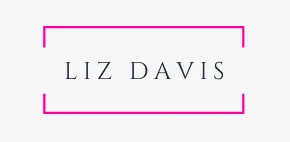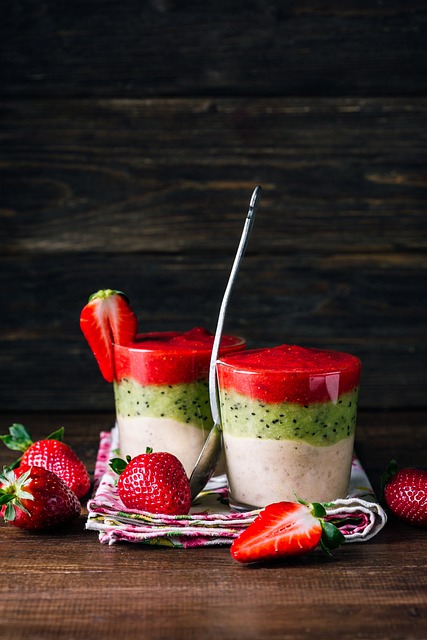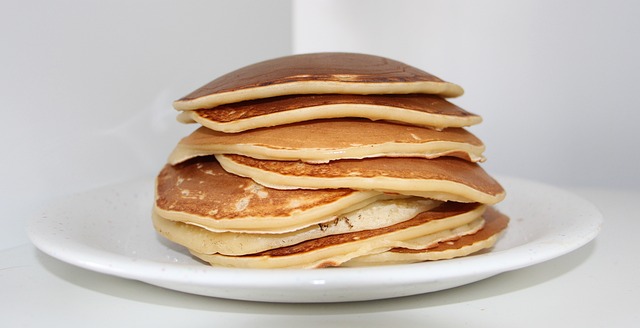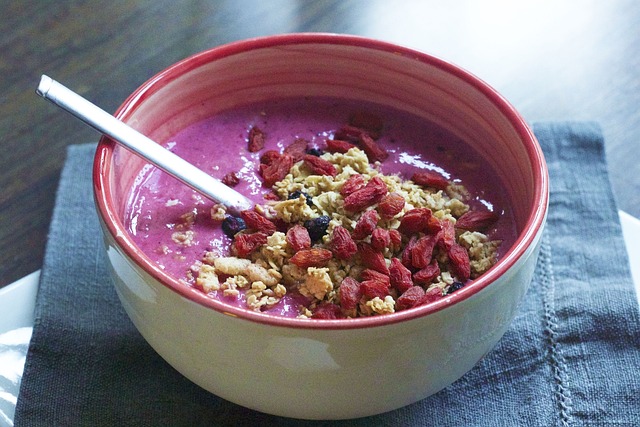There are a few points to bear in mind when it comes to breakfast, aside from what should you eat for breakfast, and they are –
- There is certainly nothing special about breakfast
- Eating healthy, good quality food for the entire day is what matters most
- Breakfast does not ‘jump start’ your metabolism
- Skipping breakfast doesn’t make you overeat and gain weight
Ultimately, breakfast is optional, and it all boils down to personal preference. If you feel hungry in the morning and like to eat breakfast then a protein-rich breakfast is best.
Chia seeds, nuts and eggs are examples of great protein-rich breakfast foods.
What should you eat for breakfast? Breakfast cereal.
There’s no doubt about it, breakfast cereal is very handy indeed – most of us are in a hurry in the morning, weekday mornings are usually anything but relaxed and cereal is easy to reach for and quick to prepare.
BUT there is a problem – commercial brands are usually loaded with refined carbs and added sugar and loads of salt.
Not the best way to start the day and a surefire way to start you off on the blood sugar rollercoaster which will leave you feeling starving and craving more carbs and caffeine a couple of hours later.
But all is not lost! There are a few things to look out for when you’re selecting your cereal.
What should you eat for breakfast? Watch the sugar content
In an ideal world you want sugar-free cereal, there are a few brands that make sugar-free but double check the labels.
For example, healthier ranges such as Deliciously Ella or Rude Health for instance will have some options which are very low in sugar (great) with high quality ingredients, and other options which are stacked with sugar.
Even if you’re shopping in a health food shop – some types are great and totally sugar free, but others can be loaded with sugar.
So be careful, always check the labels – ideally you’re looking for less than 5g of sugar per 100g, preferably with no added sugar at all.
Once you start checking labels (if you don’t already) you’ll probably be shocked at how much sugar they can contain – a lot of the time they’re just mostly sugar!!
Especially brands which are targeted at kids unfortunately.
What about wheat?
Commercial brands such as Nestle will have low sugar options, but they’re normally made of wheat, and a lot of us don’t want to be eating too much of that. It’s commonly not tolerated that well and it can be very aggravating, especially if you have gut problems.
Beware of things like bran flakes – these can be very high in sugar (alarmingly so!) and bran can be very irritating to the gut so far from a healthier option.
Yes it’s a minefield!
So unless you’re going to become very label-savvy I highly recommend you prepare your own breakfast food and get creative! It doesn’t have to be cereal.
Ensuring you’re eating a diverse diet can be a nightmare when you’re suffering with your gut, especially as so many of these ‘healthy’ foods are also big trigger foods. If this is the case for you I’d highly recommend downloading my online course The Ultimate Gut Health Programme to help you eat safely, whilst avoiding triggering symptoms.
It’d be impossible to include all you need to know in one blog, but the programme will have all you need to know to ensure you’re soothing your digestive system, whilst eating delicious and filling foods.
Here are a few ideas to get you started
A great solution is to make your own granola – so much more delicious than shop-bought versions and you know exactly what’s in it!
Porridge is always good – again check prepackaged/processed types as they may contain added sugar. Always have porridge with a good serving of protein food.
Low sugar beans on toast.
Again, for more guidance around how to include all these foods into your diet, and for some inspiration check out the programme – it has loads of really simple recipes and meal plans – if that’s what you’d find useful. To really help you pull all this together – otherwise I know it can be overwhelming.
Nut butter on toast.
Eggs – always a great, simple breakfast food – make egg muffins in advance and keep them in the fridge ready to grab as you’re heading out of the door.
Pre-make pancake mix at the weekend and use the leftovers during the week. This can be tailored to suit your dietary needs.
Smoothies and milkshakes – there are loads of great recipe ideas on line. Smoothies are my favourites as you can cram so much goodness in them, and take them with you if you’re travelling etc.
Prepare overnight oats the night before.
Don’t forget the protein!
All these ideas are packed with protein to keep you going and full of energy up until lunchtime.
If you would like to speak to me about any aspect of your gut health, then please use this link to book into my diary for a FREE 30 minute chat so I can find out more about what is going on for you. Alternatively please use the ‘Learn More’ link below.
Free Mini Programme
Would You Like to Learn How to Fix Your Digestive Symptoms, Beat the Bloat and Feel Amazing?
1:1 Coaching Plans
Get Ready to Permanently Beat the Bloat, Soothe Your Digestion and Feel Amazing
Ultimate Gut Health Programme
Delicious, Filling & Inspiring ways to Become Symptom-Free, Soothe Your Gut and Enjoy Your Food Again!



